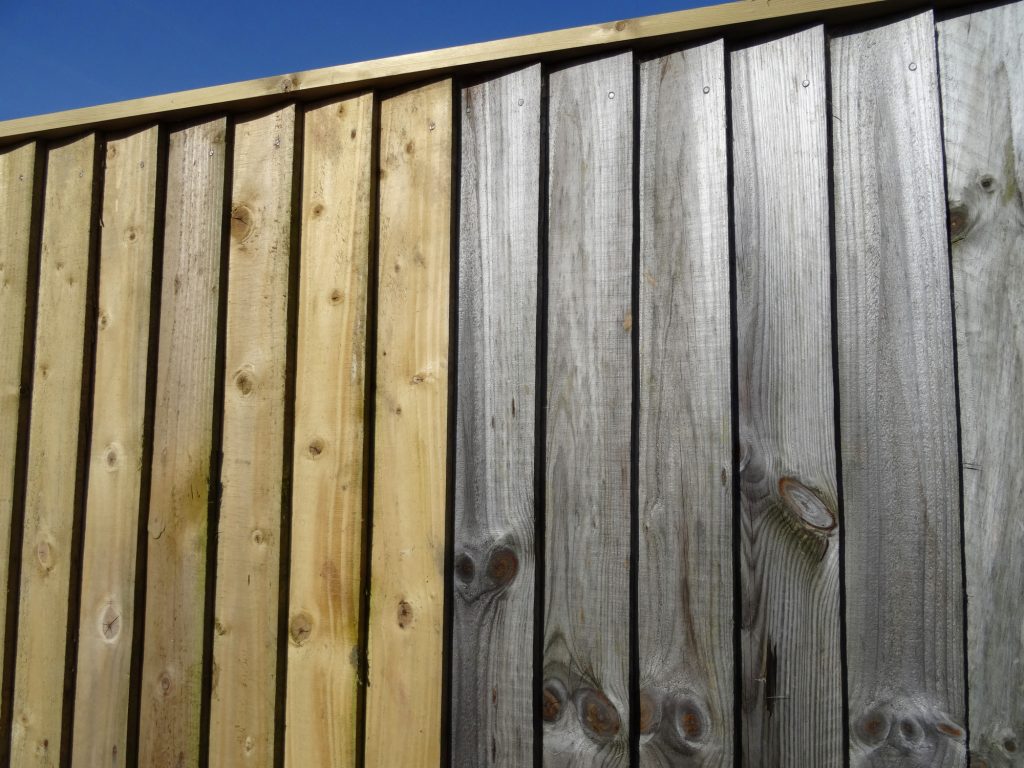How to Prevent Fence Post Rot July 27, 2024 Comments: 0

If you are planning on installing a wooden fence around your property or already have one, it is important to understand the necessary steps to regularly maintain it. Without proper care, your fence is susceptible to fence post rot. Fence post rot, which is common in wooden fences, is characterized by the deterioration of the wood. Left go too long, it can eventually lead to the collapse of your fence.
In order to understand how to care for your wooden fence, you must know that there are two types of fence post rot—wet rot and dry rot. Wet rot, which usually happens at the base of the fence or on the fence posts, is the most common type of fence rot. It occurs when there is too much moisture on the wood. Dry rot is caused by the wood drying out due to extremely sunny, harsh, and dry conditions.
Due to daily environmental exposures, fence post rot is a possibility with any wooden fence, but damage can be minimized and in many cases, it can be prevented with proper fence maintenance and installation.
Pittsburgh Fence Co, Inc. suggests you consider the following when installing or caring for your wooden fence.
Types of Wood
If choosing to install a wooden fence, be aware of the different types of wood available. Hardier woods, such as juniper and cedar, are less vulnerable to fence post rot than wood, such as pine and tamarack. Also, wood that is pressure-treated provides a protective barrier against insects and decay.
Proper Fence Installation
Your fence should be installed in an area with adequate air circulation. Additionally, your fence posts should not have contact with soil. Professional fence installers, like Pittsburgh Fence Co, Inc. will save you time and money by properly installing your fence to minimize the effects of fence post rot.
Inspect Your Fence for Signs of Rot
Inspect your fence posts and boards to make sure they are structurally sound. This will prevent problems from heavy snowfalls and other damaging effects of winter weather in Pittsburgh.
If you notice signs of fence post rot, you will want to take care of it immediately. If only a board or two is damaged, you can quickly replace the affected boards. Replacing the affected boards prevents the rot from spreading.
Protect your Fence with Stain
Regularly staining your fence helps to keep rot away. It is important to apply a high-quality brand at least once a year to prevent rain, snow, and moisture from soaking into the wood.
You can perform a quick splash test to determine if your wooden fence is in need of stain. Simply, spray water onto the fence and if it beads, your stain is still holding up. If it doesn’t bead and it soaks into the wood, then it is time to apply a coat of waterproof stain.
Keep Leaves and Debris Away from Your Fence
Leaves and debris stacked against your fence collect moisture causing wooden fences to rot. Maintain falling leaves by raking them to the center of your yard. This is especially important before the snow falls in Pittsburgh—causing additional moisture, which will wreak havoc on your fence.
Wash your Fence
It may seem unnecessary, but rain simply won’t do the trick of washing your fence. Keeping your fence clean of fungus, insect infestations, etc. will help to prevent fence rot. Regularly, clean your wooden fence with a pressure washer (on low setting) or hose down after wiping with a solution of bleach and water.
Fence Installation and Repair in Pittsburgh
As western Pennsylvania’s premier fencing provider, Pittsburgh Fence Co, Inc. is available to answer any questions regarding fence installations, fence maintenance, and fence post rot. We have been delivering top-tier quality craftsmanship to residential properties in Allegheny, Beaver, Butler, Washington, and Westmoreland Counties for over 50 years. With Pittsburgh Fence Co, Inc., you can expect your fence investment to be an attractive, safe, long-lasting, and secure addition to your outdoor space for years to come.
Contact one of our four offices today to speak with our team:
North: 412-276-4822
South: 724-228-9755
East: 412-784-1400
West: 724-775-6550